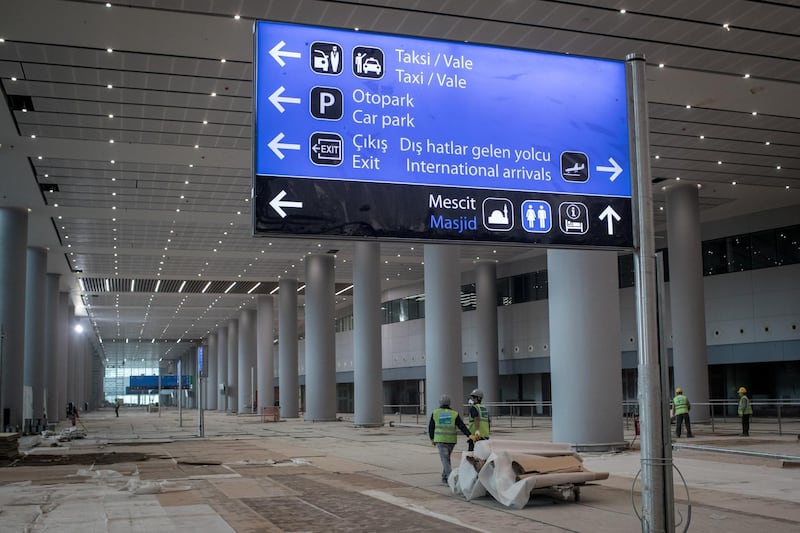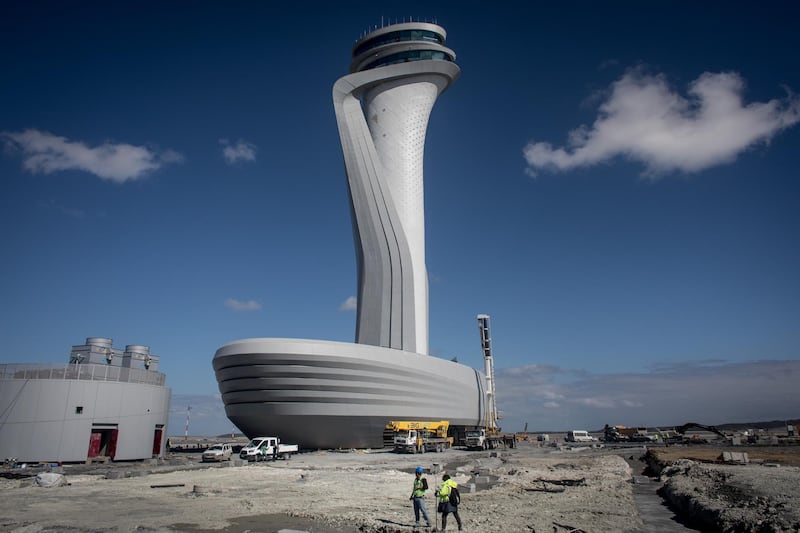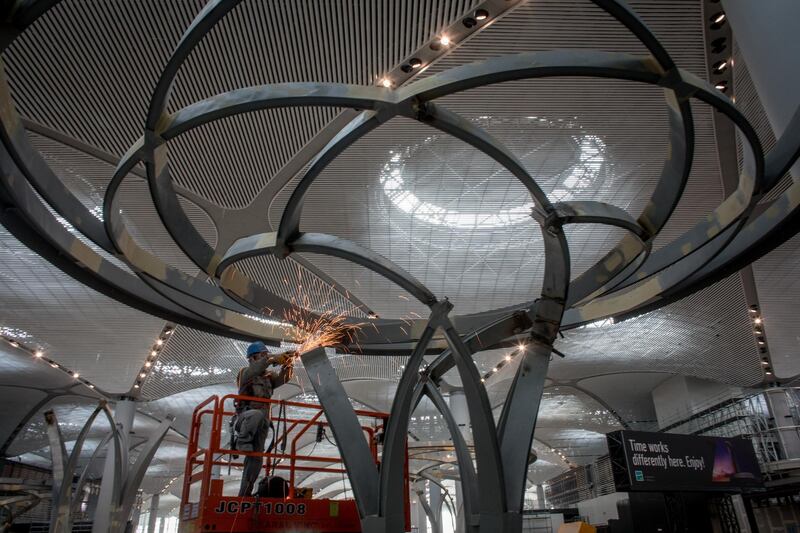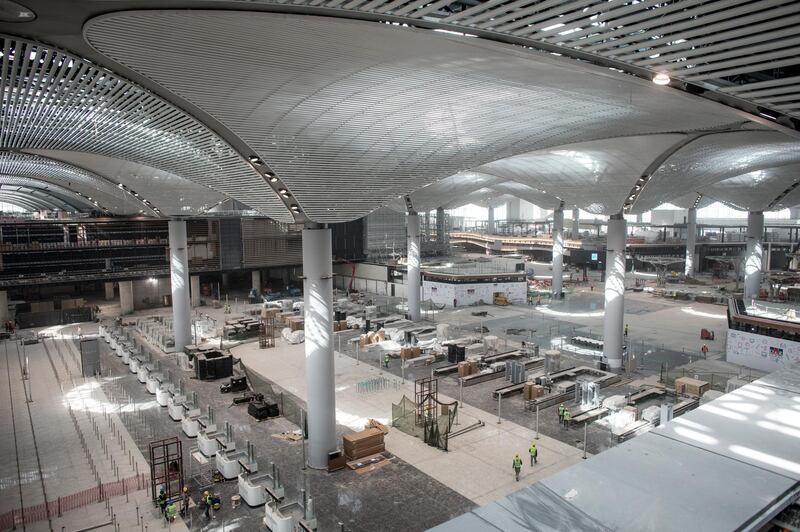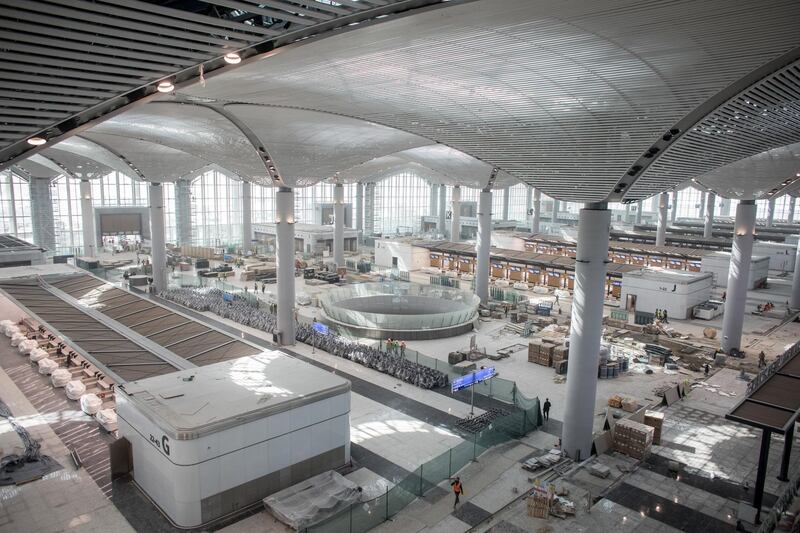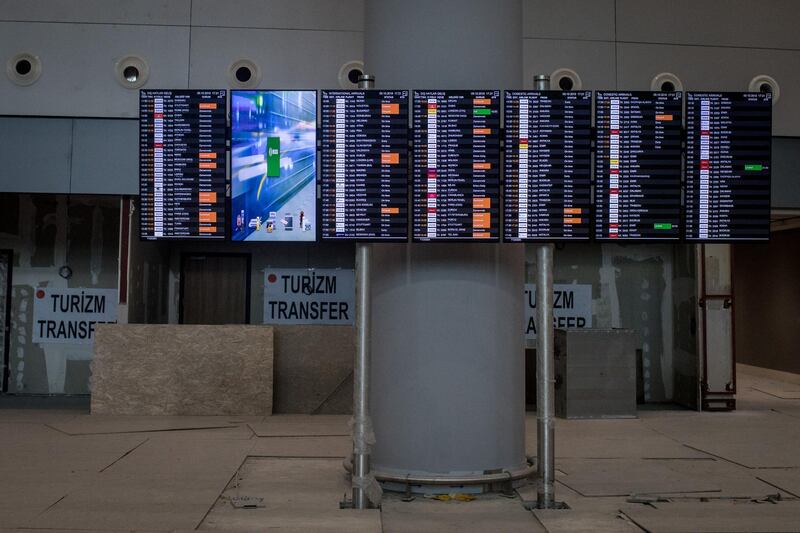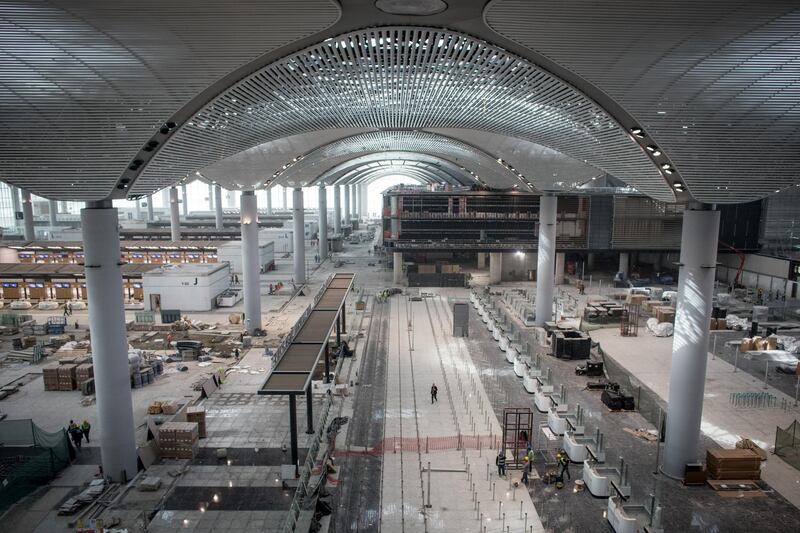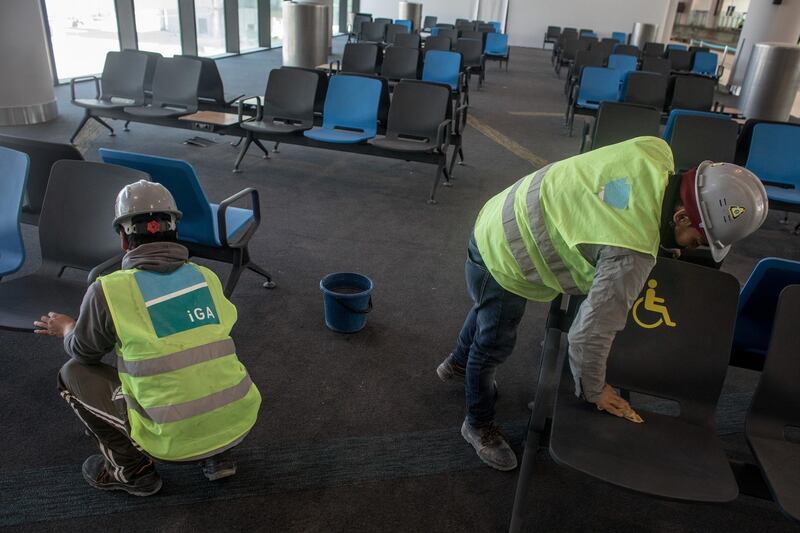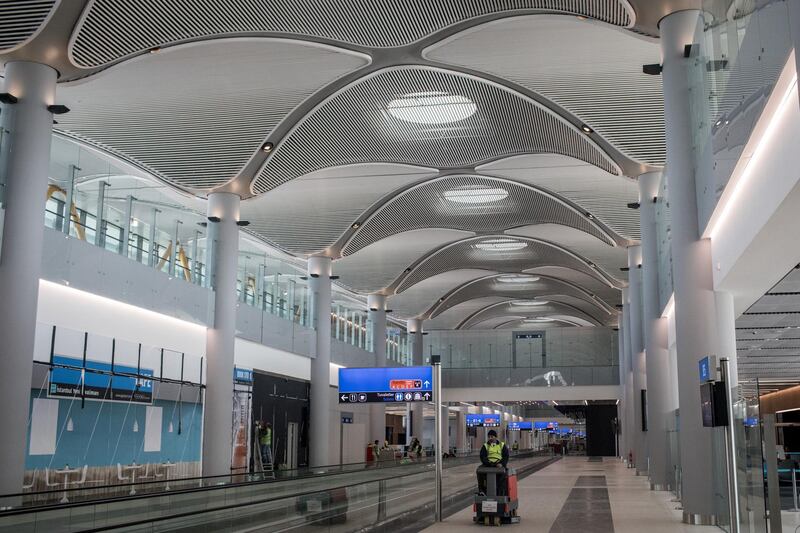Turkey's President Recep Tayyip Erdogan has held plenty of grand opening ceremonies in his 15 years at the helm of his country. On Monday he will unveil one of his prized jewels – Istanbul New Airport – a mega-project that has been dogged by concerns about labour rights, environmental issues and Turkey's weakening economy.
Mr Erdogan is opening what he claims will eventually become the world's largest air transport hub on the 95th anniversary of Turkey's establishment as a republic. It's a symbolic launch, as only limited flights will begin days later and a full move won't take place until the end of the year.
Tens of thousands of workers have been scrambling to finish the airport to meet the president's October 29 deadline. Protests in September over poor working conditions and dozens of construction deaths have highlighted the human cost of the prestige project.
Istanbul New Airport, on shores of the Black Sea, will serve 90 million passengers annually in its first phase. At its completion in 10 years, it will occupy nearly 19,000 acres, have six runways and serve up to 200 million travellers a year. That is almost double the traffic at world's biggest airport currently, Atlanta's Hartsfield-Jackson.
"This airport is going to be the most important hub between Asia and Europe," Kadri Samsunlu, head of the five company consortium Istanbul Grand Airport, said on Thursday.
The airport's interiors are inspired by Turkish and Islamic designs and its tulip-shaped air traffic control tower won the 2016 International Architecture Award. It also uses mobile applications and artificial intelligence for customers, is energy efficient and boasts a high-tech security system.
All aviation operations will move there at the end of December when Istanbul's main international airport, named after Turkey's founder Mustafa Kemal Ataturk, will close.. Ataturk Airport now handles 64 million people a year. On the Asian side of the city, Sabiha Gokcen Airport handled 31 million passengers last year. It will remain open.
Mr Erdogan is expected to announce the official name of the new airport, part of his plan to transform Turkey into a global player.
Turkish Airlines will launch its first flights out of the airport to three local destinations — Ankara, Antalya and Izmir. It will also fly to Baku and Ercan in northern Cyprus.
Nihat Demir, head of a construction workers' union, said the rush to meet the deadline was a major cause of the accidents and deaths at the site that employs 36,000 people.
"The airport has become a cemetery," he told the Associated Press, describing the pressure to finish as relentless, and blaming long working hours for leading to "carelessness, accidents and deaths".
The Dev-Yapi-Is union has identified 37 worker deaths at the site and has claimed more than 100 dead remain unidentified.
_______________
Read more:
Turkey's massive new Istanbul airport faces a rough take-off
[ Face-scanning tunnel expected to replace immigration officers is trialled in Dubai ]
[ Flights to be reduced during Dubai International Airport upgrade in 2019 ]
_______________
Turkey's Ministry of Labour has denied news media reports about hundreds of airport construction deaths, saying in February that 27 workers had died at the site due to "health problems and traffic accidents". It has not commented since then.
Airport workers in September began a strike against poor working conditions, including unpaid salaries, bedbugs, unsafe food and inadequate transport to the site. Security forces rounded up hundreds of workers and formally arrested nearly 30, among them union leaders. The company said it was working to improve conditions.
Mega-projects in northern Istanbul such as the airport, the third bridge connecting Istanbul's Asian and European shores and Mr Erdogan's yet-to-start plans for a canal parallel to the Bosporus strait are also having an impact on the environment. The environmental group Northern Forests Defence that forests, wetlands and coastal sand dunes had been destroyed or threatened by these projects. The group said that the airport threatens biodiversity.
These projects are spurring additional construction of transportation networks, housing and business centres in already overpopulated Istanbul, where more than 15 million people live. Mr Samsunlu, the airport executive, said an "airport city" for innovation and technology would also be built.
The five Turkish companies that won the $29 billion tender in 2013 under the "build-operate-transfer" model have been financing the project through capital and bank loans. IGA will operate the airport for 25 years.
Financial observers say lending has fuelled much of Turkey's growth and its construction boom, leaving the private sector with a huge $200bn debt. With inflation and unemployment in Turkey in double digits and a national currency that has lost as much as 40 per cent of its value against the dollar this year, economists say Turkey is facing an economic downturn.
Despite those dark financial clouds, the airport consortium hopes the world's growing aviation industry will generate jobs and billions of dollars in returns.
"Istanbul New Airport will remain ambitious for growth and we will carry on mastering the challenge to be the biggest and the best. That's our motto," Mr Samsunlu said.
